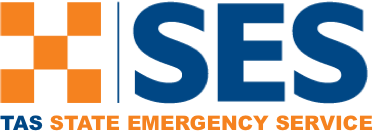Fitness for Role: for New or Prospective Members
All new and prospective members will need to complete the fitness assessments for General Rescue during their initial onboarding process – (this will typically form part of the Information Assessment Session).
What is Fitness for Role?
The Fitness for Role program is an established series of validated, defensible, and practical physical fitness standards for the tasks commonly performed by SES volunteers. FFR matches volunteers’ abilities to the roles that they undertake whilst assuring the safety of the individuals undertaking these tasks. It is also used to support members in making a self-assessment of their ability to undertake training along with performing roles within SES, including return to duty following injury.
It is important to note FFR focuses on tasks, not roles, and the term ‘fitness’, as it applies to this program, relates to the entry level (prerequisite) physical demands of SES tasks, including cardiovascular fitness, muscle capacity, and endurance. For example, a volunteer may be fit to participate in general rescue activities but may not have the strength to retrieve a casualty from a remote location, and that is ok. This project is designed to be inclusive and to build a safe and capable SES workforce using a simple and consistent assessment tool.
What are the Assessments associated with Fitness for Role?
The Tasmanian SES Fitness for Role program consists of 13 individual fitness assessments which are representative of the physical demands of tasks performed by volunteers. It’s important to note here that not all units and volunteers perform the same tasks. For this reason, you will not be expected to undertake FFR assessments beyond your operational role.
As a prospective member looking to join the organisation or as a new member, you will only be expected to meet the requirements of General Rescue in the first instance. This will involve completing the Lift and Shift assessment to Level 1, and the Carry assessment to Level 1.
I have completed the ‘Fitness for Role Readiness Declaration’ and have answered ‘Yes’ to one or more of the questions. What should I do, and can I still attend the Information Session?
We don’t want anyone undertaking tasks that they may not be physically able to do, and then injuring themselves, or others.
Because you have identified a health concern that may have an impact on your ability to safely undertake activities, you must now have a conversation with your General Practitioner (GP) or other relevant health professional to see whether the health concern you have identified is likely to have an impact on your safety in performing one or more of the operational roles within SES.
Your GP or other relevant health professional should be able to provide you with advice on the appropriate avenue relevant to your health, including supports that may be available to you.
You can still attend the Information Session and the other associated activities; however you will not be offered a position within an operational SES Unit until such time as your FFR Assessment is completed.
Copies of the Readiness Declaration and GP Clearance Letter can be downloaded here:
I’m not sure I am fit enough to complete all the assessments that I am required to undertake. What can I do to help be prepared for them?
There are a few things you can do in preparation for your Fitness for Role Assessment.
- Have a look at the video about the assessments here. The exercise guides and exercise videos help explain each of the assessments.
What if I don’t pass the FFR Assessments?
For any tasks that are out of reach, there will be guidance available for what you can do to meet the necessary requirements. The criteria for re-assessment are the same as those of the original assessment. There is no limit on the number of re-assessments that can be undertaken.
Where a participant does not successfully meet the requirements of an assessment, a re-assessment may be conducted. This re-assessment will take place at a mutually agreed time based on the nature of the assessment and what additional resources or training may be required to support the member in re-assessment.
What if I don’t want to, or can’t complete, the FFR Assessments?
Individuals who do not agree to undertake FFR Assessments or who have a medical restriction, may consider an alternative volunteer pathway within a Non-Operational SES Unit suited to their level of physical ability.

